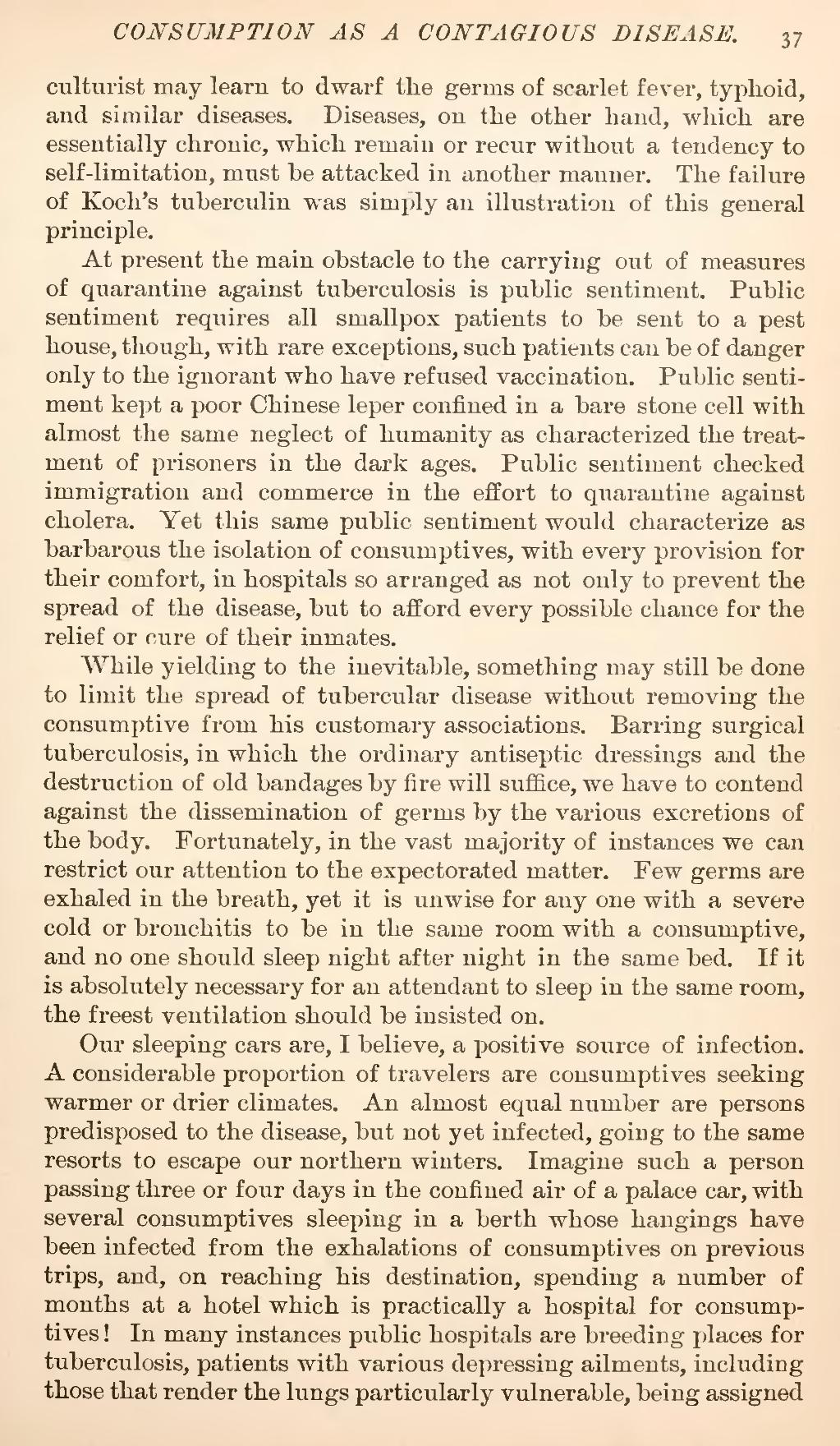culturist may learn to dwarf the germs of scarlet fever, typhoid, and similar diseases. Diseases, on the other hand, which are essentially chronic, which remain or recur without a tendency to self-limitation, must be attacked in another manner. The failure of Koch's tuberculin was simply an illustration of this general principle.
At present the main obstacle to the carrying out of measures of quarantine against tuberculosis is public sentiment. Public sentiment requires all smallpox patients to be sent to a pest house, though, with rare exceptions, such patients can be of danger only to the ignorant who have refused vaccination. Public sentiment kept a poor Chinese leper confined in a bare stone cell with almost the same neglect of humanity as characterized the treatment of prisoners in the dark ages. Public sentiment checked immigration and commerce in the effort to quarantine against cholera. Yet this same public sentiment would characterize as barbarous the isolation of consumptives, with every provision for their comfort, in hospitals so arranged as not only to prevent the spread of the disease, but to afford every possible chance for the relief or cure of their inmates.
While yielding to the inevitable, something may still be done to limit the spread of tubercular disease without removing the consumptive from his customary associations. Barring surgical tuberculosis, in which the ordinary antiseptic dressings and the destruction of old bandages by fire will suffice, we have to contend against the dissemination of germs by the various excretions of the body. Fortunately, in the vast majority of instances we can restrict our attention to the expectorated matter. Few germs are exhaled in the breath, yet it is unwise for any one with a severe cold or bronchitis to be in the same room with a consumptive, and no one should sleep night after night in the same bed. If it is absolutely necessary for an attendant to sleep in the same room, the freest ventilation should be insisted on.
Our sleeping cars are, I believe, a positive source of infection. A considerable proportion of travelers are consumptives seeking warmer or drier climates. An almost equal number are persons predisposed to the disease, but not yet infected, going to the same resorts to escape our northern winters. Imagine such a person passing three or four days in the confined air of a palace car, with several consumptives sleeping in a berth whose hangings have been infected from the exhalations of consumptives on previous trips, and, on reaching his destination, spending a number of months at a hotel which is practically a hospital for consumptives! In many instances public hospitals are breeding places for tuberculosis, patients with various depressing ailments, including those that render the lungs particularly vulnerable, being assigned

